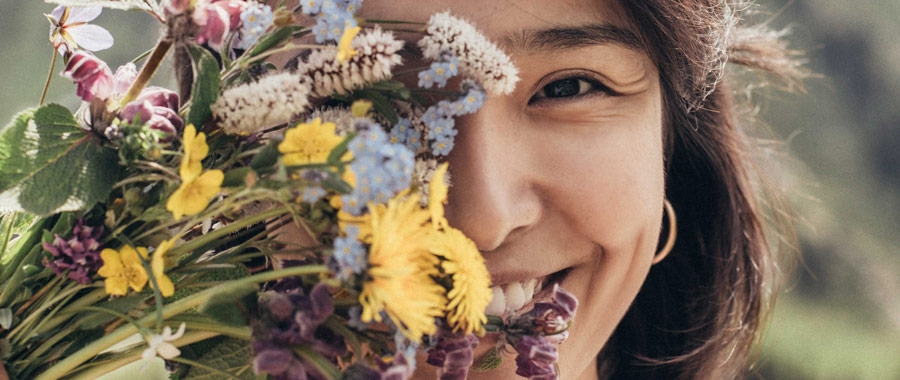The views expressed in our content reflect individual perspectives and do not represent the authoritative views of the Baha'i Faith.
Over the last year, I felt as if I had reached an impasse in my life. I likened my life to a sturdy tree, one built on the roots of hard work and tenacity. But the branches began to wither and drop, and the leaves too wilted, then died.
I had come to a crossroads in my career, my surrounding environment, and my spirituality. The life I had so carefully tried to build for myself suddenly unraveled at the seams, and a project I had steadily spent four years working towards yielded disappointing results.
I began praying in earnest, asking God why I was being so tested in nearly every area of my life. My relationship with my Maker became one of hostility and confusion. My prayers felt ignored, the course of events often manifesting the very thing I did not want, or had ardently prayed against. I became disillusioned, blaming God for my trials.
“I finally realized, after a year of transitions and difficulties, that the magnitude of my trials lived in my own ego”
In moments of sorrow, we can become almost reckless in our grief. We feel incomplete and disoriented, with a total loss of control. We have difficulty articulating the layers of our sadness, feeling despondent, and lost. When I had reached that point, though, with alarming recognition, I realized that I had blamed God for my own errors. Even more alarming, I recognized the extent of my own errors.
I finally realized, after a year of transitions and difficulties, that the magnitude of my trials lived in my own ego. I had created them myself. I followed a certain career path not only because it embodied a passion, but because I sought external validation.
As a perfectionist, I spent the duration of my early adult life excelling academically, collecting praise and approval with rapt necessity. This desire for praise and approval resurfaced as I felt myself floundering, willing someone or something to tell me that I was wonderful; that I was capable; that I was on a trajectory of success. This need for approval was meant to fill a significant void, because I did not feel wonderful. I did not feel capable. I only felt failure, and a seething disappointment in myself. Rather than seeking the approval of God, I had operated under the assumption that my merit stemmed from the praise of society.

Many of us live in a commercial reality that replaces true joy and contentment with monetary value. In that materialistic environment, it becomes easy for us to nurture our external skeleton and our material life, forgetting to foster the spiritual qualities that truly fortify us. These inner qualities validate us in the eyes of God. We are not defined by what we do, or the wealth we acquire, or the careful images of self we curate for an audience. We are defined by who we are, and by the spiritual virtues that embolden us and make us authentic – patience, kindness, our ability to radiate compassion and humility. Similarly, our spirituality can only be nurtured through the refining of these qualities. The Baha’i teachings say:
Tests are benefits from God, for which we should thank Him. Grief and sorrow do not come to us by chance, they are sent to us by the Divine Mercy for our own perfecting.- Abdu’l-Baha, Paris Talks
Anyone can live contentedly in circumstances of ease and comfort, health and well-being, gratification and felicity; but to remain happy and contented in the face of difficulty, hardship and the onslaught of disease and sickness – this is the indication of nobility. – Abdu’l-Baha, Baha’i World Faith
To embody these virtues only in moments of comfort does little to elevate our spiritual station. It is so easy to remain steadfast and trusting of God when our worldview is not altered or challenged. We do not question God when we remain woefully ignorant, because we feel content. But once our beliefs and our contentment get challenged or dismantled, we’re forced to confront ourselves, facing the inner barricades that diminish the light.
We ask Him why, and how, and we are asked in return to evaluate ourselves, to look inward and reconcile what we find there. We prune those experiences and those lesser qualities which have left us numb, overcoming our egos and our unhealthy attachments in the process. In this way the Will of God, then, has revealed itself. It has been opened and revealed through the glimmers of our weaknesses; the cracks and fissures of our shortcomings, and ultimately, the refusal to face our imperfections. God’s Will is ordained only when we work in tandem with our Creator. It is not for God to accelerate our growth, or ease our discomforts, but for us to hold ourselves accountable, diligently appraising our actions.
As I began to unpack the various facets of my anxieties and my stifling perfectionism, asking where this need for validation came from, I wondered how I could evolve beyond them. I continued to pray, and meditate, but saw that the realities of my tribulations only manifested through my actions. While one necessary action for myself involved the continued use of therapy, the other turned into a consecrated spiritual awareness. An understanding formed when I shifted my focus, and my efforts, asking myself what it really meant to live a fruitful life. Ultimately, the Baha’i teachings tell us, we live to help others, sharpening those bonds of community around us. Baha’u’llah, the prophet and founder of the Baha’i Faith, wrote: “Be anxiously concerned with the needs of the age ye live in, and center your deliberations on its exigencies and requirements.” – Gleanings From the Writings of Baha’u’llah
I have actively served in my surrounding communities, but in my moments of deeply seeded self-loathing and misery, I forced myself to detach from myself by trying to respond to the needs of others. It was only when I engaged in helping my neighborhood’s junior youth group or actively responded to the needs of my local and my Baha’i community that I began to forget myself.
As a result, my consciousness elevated; my spirituality deepened; and a heightened awareness of my flaws afforded me the opportunity to purify them. I learned that we must, at all times, endeavor to raise our spiritual capacities. Often, this means asking myself these difficult questions: what are those qualities and those habits that remove me from God? If I’m aware of them, why do I hold them dear to me? If I feel too attached to my misguided efforts, then shouldn’t I seek to adjust them, humbling myself before God?
The mind and spirit of man advance when he is tried by suffering. The more the ground is ploughed the better the seed will grow, the better the harvest will be. Just as the plough furrows the earth deeply, purifying it of weeds and thistles, so suffering and tribulation free man from the petty affairs of this worldly life until he arrives at a state of complete detachment. His attitude in this world will be that of divine happiness. Man is, so to speak, unripe: the heat of the fire of suffering will mature him. Look back to the times past and you will find that the greatest men have suffered most. – Abdu’l-Baha, Paris Talks
It is only through our tests and our sorrows that these questions impose themselves, and despite my recent anguish, I am grateful for the gleamings of truth they taught me. I am humbled to have had the opportunity to ask the questions, posing a period of deep self-reflection. Although there is something to be said in favor of excelling in a vocation, I now understand that my efforts in all things must flow through the vein of humility. It is only when we live a life outside of ourselves that we find true contentment. The securities of career, wealth, and prosperity can be painfully fleeting – only God is eternal, and only service to Him renders us the crown of true joy.
















Comments
Sign in or create an account
Continue with Googleor